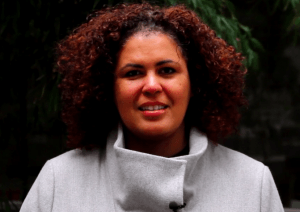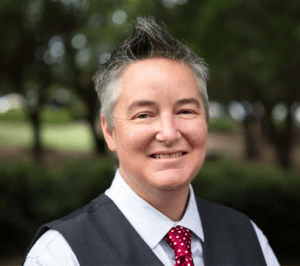DLF Forum Keynote Speaker

Safiya U. Noble, Ph.D. will open the 2015 DLF Forum with a keynote talk drawing on her work in critical race and information studies and socio-cultural informatics, “including feminist, historical and political-economic perspectives on computing platforms and software in the public interest.” Dr. Noble is an assistant professor in the Department of Information Studies in the Graduate School of Education and Information Studies at UCLA, where she conducts research “at the intersection of culture and technology in the design and use of applications on the Internet.” She is the author or co-author of articles such as “Google Search: Hyper-visibility as a Means of Rendering Black Women and Girls Invisible,” “Race and Social Media,” and “Geographic Information Systems: a Critical Look at the Commercialization of Public Information,” as well as the forthcoming, “Social Justice as Topic and Tool: An Attempt to Transform a LIS Curriculum and Culture” in Library Quarterly. Among Noble’s recent talks is a TEDx presentation at UIUC, “In Pursuit of an Ethics of Information.”
Noble’s Keynote Address, “Power, Privilege, and the Imperative to Act”:
The landscape of library and information fields is rapidly shifting, as new imperatives and demands push to the fore in support of increasing investments in digital technologies. Yet critical information scholars continue to demonstrate how digital technology and its narratives are shaped by and infused with values that are not impartial, disembodied, or lacking positionality. Technologies consist of a set of social practices, situated within the dynamics of race, gender, class, and politics and in the service of something — a position, a profit motive, a means to an end. Recently, engagement with digital technologies has become an enticing way of giving voice to marginalization and oppression, and hashtag activism has gained prominence as a potential intervention in forms of organizing, while disrupting traditional notions of how activism and protest should take place. In this talk, Safiya Umoja Noble will discuss the importance of the digitally-enabled academic-activist library community to offer models of intervention and resistance through research, practice and teaching, and the importance of examining the consequences and affordances of LIS activist work in a digital paradigm. By illuminating linkages to power struggles over values, particularly in the context of the digital, we can re-examine information contexts that can engender greater responsibility and imperative to act.
Liberal Arts Colleges Pre-Conference Keynoters
The DLF Forum LAC Pre-Conference will feature an exciting joint keynote presentation by Cecily Walker and Chris Bourg, Ph.D.

Cecily Walker is Vancouver Public Library’s Assistant Manager for Community Digital Initiatives & eLearning, focusing on user experience, open data, social media, and the intersection of social issues, technology, and public librarianship. As she puts it: “It was my frustration with the way software was designed for the needs of programmers and highly technical users rather than the general public that led me to a career in user-centered design. It was my love of information, intellectual freedom, and service that pulled me back to librarianship.” Walker is a member of the editorial board of In the Library with the Lead Pipe and a recent host of #L1S, a tweet-chat for first-generation library professionals.

Chris Bourg, Ph.D. is Director of Libraries at MIT, with oversight of the MIT Press and related initiatives. She comes to MIT after a distinguished career in public services at Stanford University Library and on the faculty of the United States Military Academy at West Point, where she taught courses in leadership and sociology. Bourg is author of the long-running “Feral Librarian” blog and a number of scholarly publications, including (with Bess Sadler) the recent code4lib journal article, “Feminism and the Future of Library Discovery.”
